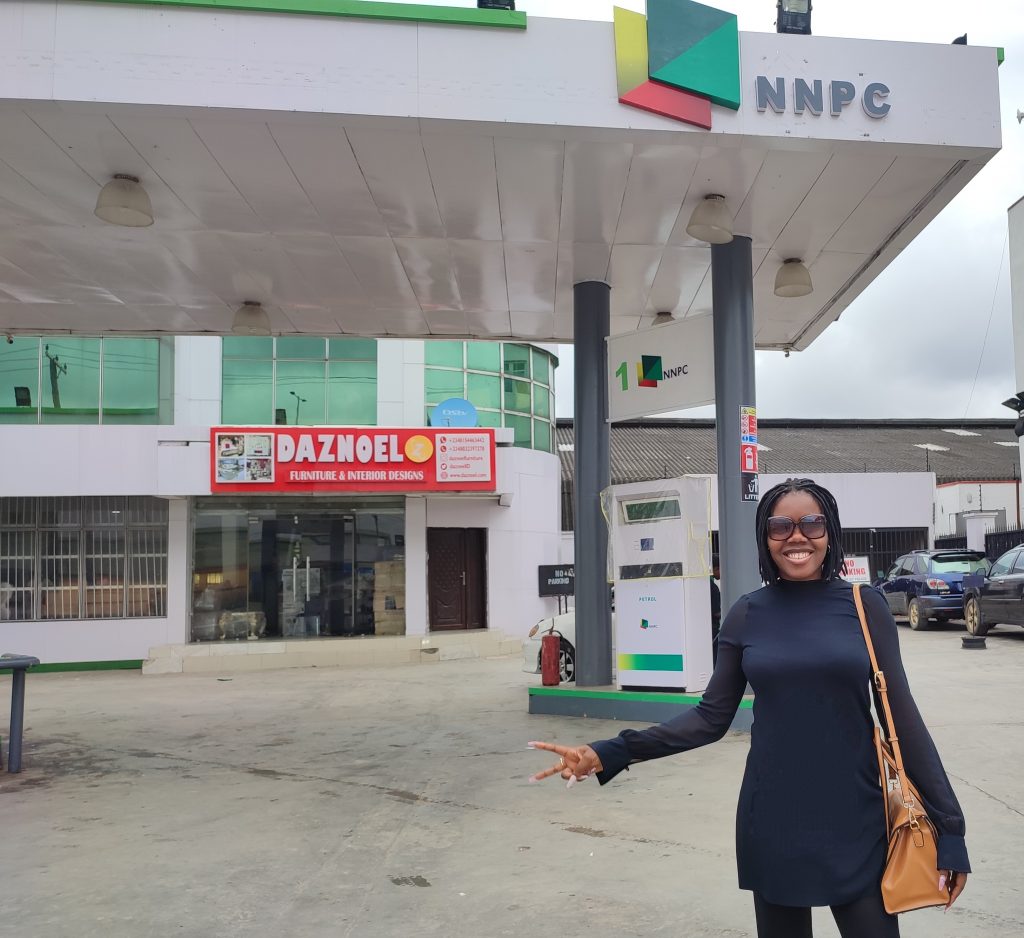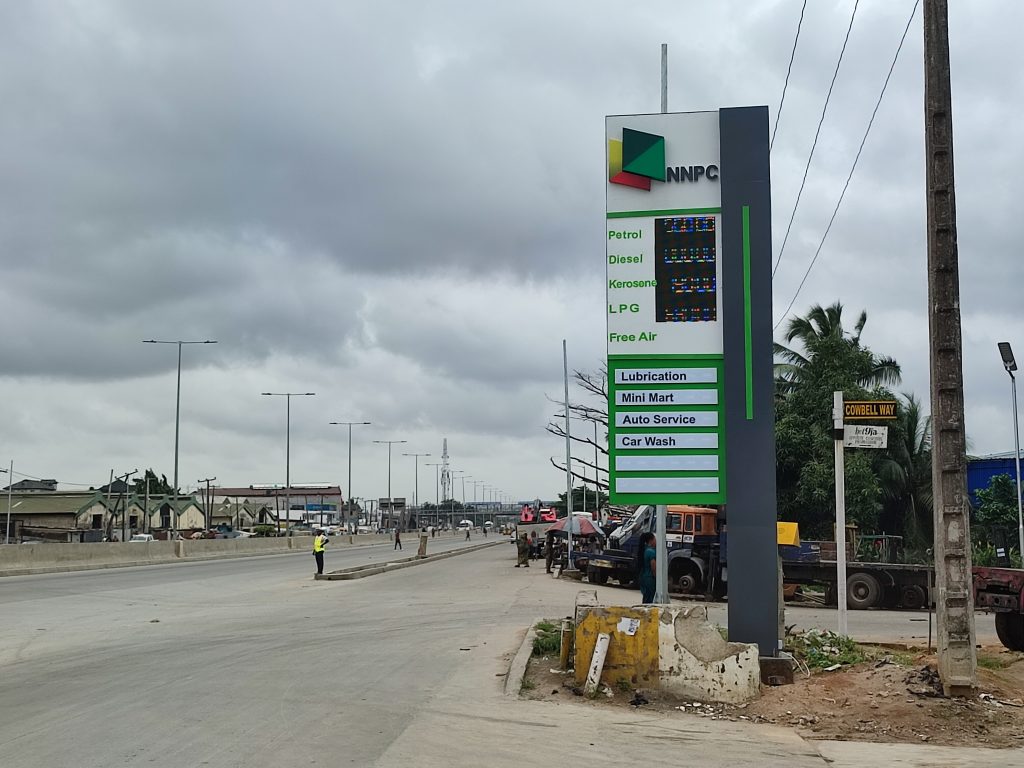
Ignore the fact that I’m shining my teeth in the picture above, it is actually not from my heart. The impact of increased fuel prices in Nigeria is literally saying “Nigeria ntooor!”.
In recent times, Nigeria has witnessed a significant increase in fuel prices, a development that has sparked concerns and discussions across the nation. No Nigerian can come out to say that this increase in fuel doesn’t concern them because they’d be lying and deceiving themselves. One way or the other, it affects everybody. Fuel plays an essential role in Nigeria’s economy, powering transportation, businesses, and homes. As citizens face the reality of these soaring costs, it becomes crucial to delve into the effects of this price hike and its far-reaching implications on various aspects of Nigerian society.
We’ll be discussing the six (6) major impacts of increased fuel prices in Nigeria so that we can all understand how everyone is being suffocated and not allowed to breathe.
6 Major Impacts of Increased Fuel Prices in Nigeria

1. Economic Strain and Inflation
One of the most immediate consequences of the increased fuel price is its impact on inflation rates. Everything has just gone high as if they’re competing amongst themselves who’d be at the top – “Lonely at the top, gbe gbe gbe gbe gbe gbe”. As transportation costs surge, the prices of goods and services rise correspondingly. Both of them are chanting and chorusing “I’m going higher, yes I am… I’m going higher someday…”.
This economic strain puts pressure on households’ budgets, leading to reduced purchasing power and potential declines in consumer spending. By the time you calculate your new increased budget, all forms of pressure including the blood pressure will get high. Businesses, especially those reliant on transportation, may also experience higher operational costs, which could lead to price hikes and limited job opportunities.
2. Socioeconomic Inequity
It would interest you to know that the burden of higher fuel prices is not distributed equally across society. Low-income families, already battling with financial constraints, bear the pressure of the price hike. Things are getting tremendously expensive for the average Nigerian. The increased cost of transportation and basic commodities directly affects their standard of living, potentially exacerbating poverty and income inequality. Addressing the needs of vulnerable communities becomes imperative to ensure social cohesion and inclusive development.
To be put simpler, the poor are getting poorer and the rich might not be getting richer, but they’re just there. More like the rich are stagnant and are at one spot due to lack of growth. As humans, whether rich or poor, it is important to always strive to succeed and make it big in life.
3. Transportation Woes as an Impact in Increased Fuel Prices in Nigeria
For millions of Nigerians, public transportation is a lifeline. People are mostly going places for their “daily 2k”. They need to transport themselves almost everyday to achieve that. With fuel prices soaring, public transportation fares follow suit, making it difficult for many to access affordable transportation options. This poses challenges for daily commuting and significantly impacts the livelihoods of those who rely on daily wage labor.
Some people end up not being able to afford the increase in transportation fare, and so, stay indoors. Others who are determined to reach their destination, end up trekking long distances, sweating under the sun and shivering under the rain. The impact of increased fuel prices in Nigeria is nobody’s mate. The government and stakeholders must collaborate to find sustainable solutions to keep public transportation accessible and affordable.
4. Agriculture and Food Security
Agriculture is a vital sector in Nigeria, contributing to food security and economic stability. Of course when man works, man must chop, whether it is agbado, cassava, or even ewa. Man must definitely have something to put in the tummy. The surge in fuel prices affects the cost of farm operations, including machinery, irrigation, and transportation of produce. Consequently, this may lead to increased food prices, potentially threatening food security and putting pressure on household budgets.
In addition, the impact of increased fuel prices in Nigeria also applies and affects bottle water and pure water companies as their prices have all gone high. One would think that “Is this not just water? Why would the cost of water increase so badly? Are there any special ingredients needed to produce water?” Well, the answer boils down to high fuel prices. We all know that electricity, most times, is not stable and reliable in Nigeria, therefore these water companies run generator sets or other devices/equipment that utilize fuel for production. Same thing goes to the production of eggs. People make comic statements, asking if the hen produced the eggs through special delivery processes such as Cesarean-Section (CS) – this is wild for real.
Despite all these challenges happening in Nigeria, some leaders still have the mind to hoard foodstuffs meant for the people. We hear stories of residents discovering warehouses were foodstuffs and other materials were hidden from the poor masses. Nigeria – we hail thee! Supporting farmers through targeted policies and investments becomes crucial to maintain food stability and rural livelihoods.
5. Business and Investment Climate
For businesses, higher fuel prices can lead to increased production costs, reduced profit margins, and decreased competitiveness in the global market. Additionally, investors may hesitate to commit to Nigeria due to concerns about sustainability and operational costs. Lol – when we say investors, we mean real investors and not Oga Sabinus type of investors. If we watch closely, we’d notice that some companies are already leaving Nigeria. An example of such company is GlaxoSmithKline (GSK). Their exit came as a shocker to Nigerians as they have been in operation for over 50 years – E shock you! This is to let you know how difficult running businesses and making investments in Nigeria have become. To become a successful business owner in Nigeria is in God’s hands at the moment.
To foster a conducive business environment, the government can implement measures to support local industries, promote energy efficiency, and incentivize sustainable practices. See some of these lucrative business ideas in the blog post below.
6. Environmental Implications
As fuel prices rise, the demand for energy-efficient and sustainable practices becomes more critical than ever. Increased fuel consumption translates to higher greenhouse gas emissions, contributing to environmental degradation and climate change. This might not seem new to Nigerians because they’re already used to the environmental implications and pollution in the country. Fuel is an essential commodity in the country, and its frequent consumption has a foul implication on the environment, such as fumes, toxic inhalation, staining, degradation, and so on. Most citizens consume it daily to run one or two packages, and so it’s almost hard to avoid.
We at JacyLaura.com would have suggested introducing fuel alternatives in form of electricity, but then NEPA/PHCN are not even smiling. They are not even pretending to shine their teeth just as seen in the first picture above!
Encouraging the adoption of renewable energy sources and investing in eco-friendly technologies can help mitigate the impact on the environment and promote a greener future for Nigeria.
Conclusion on The Impact of Increased Fuel Prices in Nigeria
The increased fuel price in Nigeria has far-reaching effects that touch every aspect of society. From economic strains to social disparities and environmental concerns, the challenges posed by this price hike call for comprehensive and sustainable solutions. Collaboration between the government, private sector, and citizens is essential to find a balance that supports economic growth, safeguards social welfare, and protects the environment. By addressing these challenges head-on, Nigeria can steer towards a more resilient and inclusive future.
Thank you for taking your time to read and analyze the impact of increased fuel prices in Nigeria with us. To help The JacyLaura’s Blog grow and to keep others educated and informed, please comment and share to your loved ones. Also, do not miss out on new blog posts as they are published – Subscribe today!
Are we connected on various social media platforms? If not, follow us today – we want to get closer to you ~ Facebook, Instagram, Twitter, YouTube, and TikTok.

